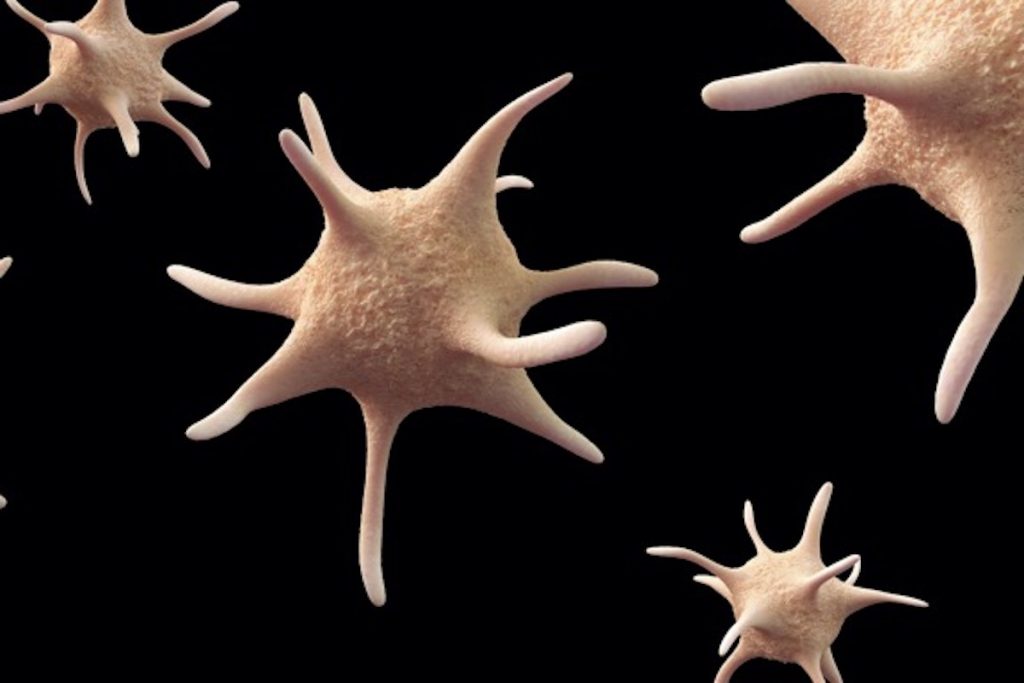
Summary of article Restoring RUNX1 deficiency in RUNX1 familial platelet disorder by inhibiting its degradation. Michelle C Krutein , Matthew R Hart, Donovan J Anderson, Jasmin Jeffery, Andriana G Kotini , Jin Dai, Sylvia Chien, Michaela DelPriore, Sara Borst, Jean Ann Maguire, Deborah L French, Paul Gadue, Eirini P Papapetrou, Siobán B Keel, Pamela S Becker, Marshall S Horwitz Blood Adv 2021 Feb 9;5(3):687-699.doi: 10.1182/bloodadvances.2020002709. PMID: 33560381 PMCID: PMC7876894 https://pubmed.ncbi.nlm.nih.gov/33560381/
Platelets are fragments of a type of white blood cell produced by megakaryocytes. They stop the bleeding of a wound by forming blood clots and by regulating blood coagulation. If you don’t have enough platelets or if they do not function properly, you are at risk of having bleeding problems and other health issues.
There are several diseases related to the malfunction of platelets. One of them, called Familial Platelet Disorder (FPD), is a rare, inherited disorder caused by changes (mutations) in the gene RUNX1. Changes in genes generally affect the amount and function of the proteins they produce, which then cause cells to function improperly. Patients with this disorder are at higher risk of developing certain types of blood cancer, such as acute myeloid leukemia (AML).
This study focused on increasing the production of the proteins produced from the gene RUNX1, intending to enhance the platelets’ performance. The researchers used drugs that inhibit/retard the degradation of the protein produced from the gene RUNX1, thereby increasing its concentration inside the cell. By having an increased amount of this protein, its activity was also enhanced. This should improve platelets’ performance.
The results of this study show that using drugs capable of increasing the quantity of proteins produced by the gene RUNX1, might improve platelets’ performance. These drugs may be a potential therapy for treating bleeding and possibly preventing the onset of leukemia in patients with FPD.
